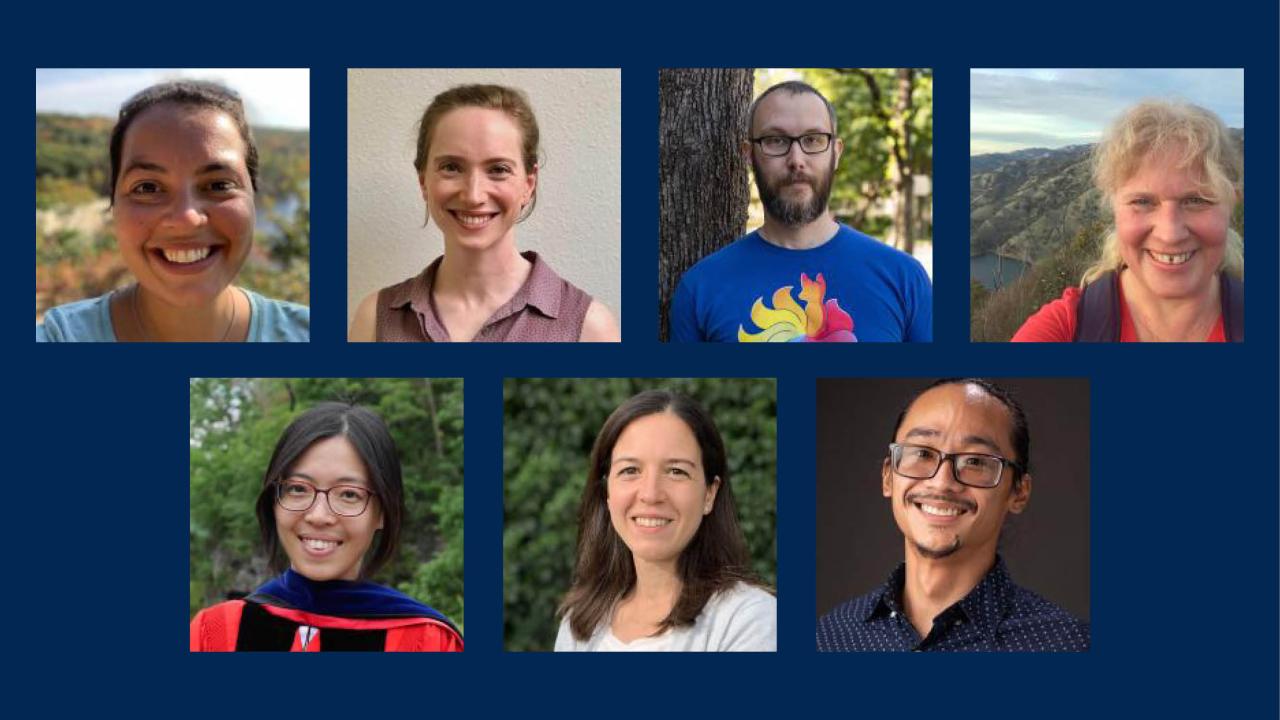
CBS Welcomes New Faculty in the 2022-23 Year
Three departments welcome new crop of researchers and mentors
The college is very pleased to welcome the newest members of its broad and diverse faculty. With appointments in the Departments of Evolution and Ecology, Plant Biology and Microbiology and Molecular Genetics, the new faculty are poised to make an impact on their respective areas of expertise, and on the classroom and laboratory experience of our students across the college.
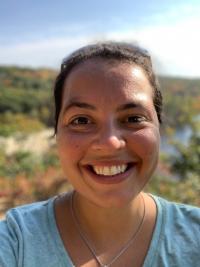
Anya Brown
Assistant Professor
Department of Evolution and Ecology
Anya Brown studies community ecology, particularly in coral reefs. She explores how variation in traits, including host-associated microbes, influence species responses to stress, species interactions, adaptive plasticity, and the trajectory of communities. She combines observational studies, field and lab experiments, and uses molecular tools in her approach to answering questions in marine environments. Based at the Bodega Marine Lab, the Brown Lab will encourage students to explore questions that can be asked across different marine systems, particularly coral reefs and the local coastal systems. Brown is passionate about conducting scientific research and teaching, and creating an inclusive scientific community.
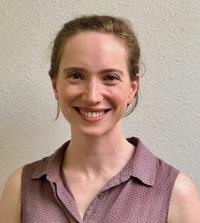
Laura Bogar
Assistant Professor
Department of Plant Biology
Laura Bogar studies the interactions between plant roots and soil fungi, particularly ectomycorrhizal mutualism between trees and mushrooms. Most trees rely on fungi to help them acquire soil resources, often associating with dozens of fungal species simultaneously. The Bogar lab uses tools from molecular biology, physiology and ecology to understand how this essential mutualism works, and how the functioning of diverse mycorrhizal symbioses influence which trees dominate a forest, how they interact with each other, and how the forest as a whole responds to environmental change. In her lab, Bogar strives to nurture scientific curiosity, develop critical thinking and project management skills, and support students who explore scientific research as a part of their academic and professional journeys.
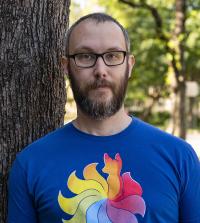
Jonathan Bragg
Assistant Professor of Teaching
Department of Microbiology and Molecular Genetics
Jonathan Bragg is primarily focused on education and learning in microbiology, in addition to microbial genetics and physiology. His work applies principles of active learning to large-scale lectures and classroom environments, particularly for the study of microbiology. With undergraduates, Bragg focuses on identity formation as a scientist, and the development of Course-based Undergraduate Research Experiences (CUREs). He is the coordinator for sections of the BioLaunch program, which serves CBS students with mentorship and career preparation and supports them from the time they arrive on campus.
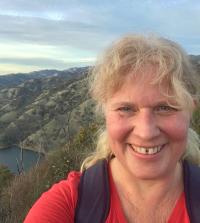
Elizabeth Crone
Professor
Department of Evolution and Ecology
Elizabeth Crone studies population ecology, especially of plants and insects, and plant-animal interactions at the intersection of theoretical ecology and natural history. Specifically, she is interested in how environmental changes translate to changes in population dynamics. Much of her research involves developing novel quantitative approaches to predict long-term dynamics from small scale observations and experiments. Her research and teaching are characterized by helping students and colleagues use general principles of ecological theory as a guide to interpreting data and understanding the potential implications of environmental change. As a mentor, she is committed to finding ways to make statistics more intuitive to students in biological and environmental sciences.
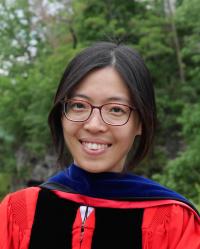
Yann-Ru Lou
Assistant Professor
Department of Plant Biology
Yann-Ru Lou is a biochemist who studies the evolutionary history of diverse specialized metabolites that are produced by plants to interact with their environment. Despite our knowledge of enzymes and biosynthetic pathways behind these metabolites, connecting their evolving structures to functions and bioactivities remains a great challenge. Lou’s lab uses plant synthetic biology coupled with biochemical, metabolomics and computational approaches to investigate the evolutionary trajectories of plant chemical diversity. By applying biochemistry to chemical ecology, Lou’s lab seeks to identify important chemical modifications and products, reveal molecular mechanisms underlying biodiversity of specialized metabolites, and discover evolution-guided solutions for metabolic engineering and synthetic biology to create products useful to humans.

María Maldonado
Assistant Professor
Department of Plant Biology
María Maldonado studies respiration, a key energy-producing process. In photosynthetic organisms, the balance between respiration and photosynthesis determines how much the organism can grow and how much carbon dioxide is captured or released. Therefore, understanding both of these processes has significant implications for agricultural productivity and atmospheric composition. Maldonado’s lab seeks to widen and deepen our understanding of respiration in photosynthetic organisms by using biochemical, biophysical and structural biology approaches to study the respiratory complexes and supercomplexes of model plants, crops, green algae and non-green algae. The goal of her efforts is to both expand our knowledge of this fundamental biological process and to set the basis for new strategies for food security and the mitigation of climate change. Maria is also a 2022-23 Center for the Advancement of Multicultural Perspectives on Science (CAMPOS) scholar, and was selected in recognition of her efforts to make the STEM disciplines more inclusive, diverse and engaged with under-served communities.
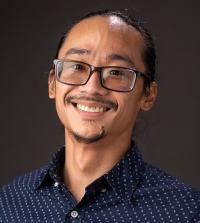
Kenjiro Quides
Assistant Professor of Teaching
Department of Microbiology and Molecular Genetics
Kenji Quides is a microbial evolutionary ecologist with broad interests in microbial symbioses. He studies the hidden conflict in legume-rhizobium mutualism. He is interested in the use of active learning strategies to improve retention of students from diverse backgrounds, and uses in-class strategies to promote active engagement in course material, as well as project-based learning to maximize opportunities for hands-on collaborative learning. Of special interest is the creative process of integrating research and teaching during the development of Course-based Undergraduate Research Experiences (CUREs). Quides is committed to fostering diversity, equity and inclusion for all STEM students. Kenji is also a 2022-23 Center for the Advancement of Multicultural Perspectives on Science (CAMPOS) scholar, and was selected in recognition of his efforts to make the STEM disciplines more inclusive, diverse and engaged with under-served communities.
